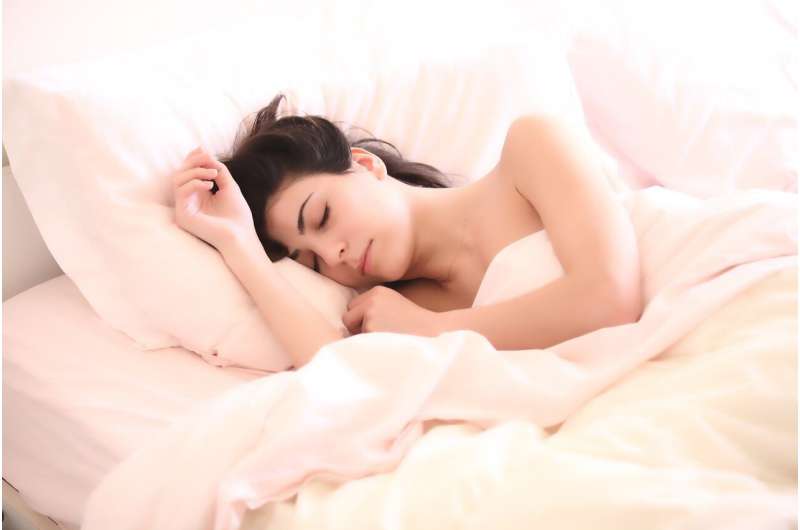This article has been reviewed according to Science X's editorial process and policies. Editors have highlighted the following attributes while ensuring the content's credibility:
fact-checked
peer-reviewed publication
trusted source
proofread
Catching extra sleep on the weekend could limit your risk of hyperuricemia

Sleep deprivation, especially common during postmenopause, has been linked with a number of health problems, including hyperuricemia (elevated serum uric acid), which can often lead to gout and other life-threatening conditions such as heart disease. A new study suggests that weekend catch-up sleep may minimize the risk of hyperuricemia in postmenopausal women. Study results are published online today in Menopause.
Hyperuricemia is most often associated with gout, an increasingly common form of arthritis characterized by severe pain, redness, and tenderness in joints. Pain and inflammation occur when too much uric acid crystallizes and deposits in the joints. In addition, hyperuricemia is associated with metabolic syndrome, diabetes, hypertension, and kidney and cardiovascular diseases.
The prevalence of hyperuricemia increases with age in all populations and especially in women after menopause. That's because, according to previous studies, hyperuricemia is inversely related to estrogen levels.
A suggested approach to lowering the risk of hyperuricemia is adequate sleep duration that unfortunately becomes more of a challenge during the postmenopausal phase. Sleep is known to be essential for many people's immune response, cognition, performance, psychological state, and disease status. Several studies have shown that too little or too much sleep is related to poor health problems such as hyperuricemia, hyperlipidemia, hypertension, type 2 diabetes, obesity, cardiovascular disease, and even mortality.
In this latest study involving nearly 1,900 participants, the researchers hypothesized that weekend catch-up sleep could be a solution to making up for lost sleep during the week and effectively lowering the risk of hyperuricemia in postmenopausal women, who often struggle to get sufficient sleep. This is the first known study to investigate the relation between weekend catch-up sleep and hyperuricemia in postmenopausal women.
Study results suggest that weekend catch-up sleep is linked with a lower prevalence of hyperuricemia in postmenopausal women with insufficient sleep. Further studies are required to identify the causal relationships between sleep recovery and hyperuricemia in postmenopausal women.
The results of this study are published in the article "Association between weekend catch-up sleep and hyperuricemia with insufficient sleep in postmenopausal Korean women: a nationwide cross-sectional study."
"Elevated serum uric acid levels are associated with multiple cardiovascular disease risk factors, whereas sufficient, good-quality sleep has proven health benefits. This study shows that weekend catch-up sleep of just 1 to 2 hours was linked with a lower prevalence of hyperuricemia in postmenopausal women with insufficient sleep. Although the mechanisms responsible for these findings remain unclear, a weekend nap may be just what the doctor ordered," says Dr. Stephanie Faubion, NAMS medical director.
More information: Stephanie Faubion et al, Association between weekend catch-up sleep and hyperuricemia with insufficient sleep in postmenopausal Korean women: a nationwide cross-sectional study, Menopause (2023). DOI: 10.1097/GME.000000000000002186


















